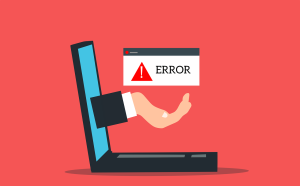Privacy Coins and their Drawbacks
Anonymity is an important feature of the crypto world where currencies like Bitcoin run on Blockchain and are maintained by a network of anonymous validators. But what happens if we take it a step further and implement advanced privacy techniques that obscure the flow of money across the network? That is the basis of privacy coins, where the anonymity helps in preventing snooping into one’s financial activities. However, the unclear legal status of privacy coins, its implementation challenges and potential for misuse has put a dampener on its widespread use. In this blog, we will investigate why privacy coins haven’t been a success till date.
ZCash and Monero
The two largest privacy coins by market capitalization are ZCash and Monero. Monero is one of the only privacy coins that is private by default. To hide transaction data, Monero uses one-time-use “stealth addresses” for each transaction; “ring signatures”, which group genuine transactions with old “decoy” transactions to make it difficult to work out which transaction is legitimate, and “ringCT”, which hides the amount of Monero sent in a transaction.
On the other hand, Zcash is a privacy coin that also allows for transparent transactions. ZCash allows users to turn off its privacy functions. Private transactions use zero-knowledge proofs: a type of mathematical calculation that signals to the network that something is definitely true – like the validity of a transaction – without publishing additional information about that transaction, like the addresses and the transaction amounts.
Legality of privacy coins
Privacy coins have come under intense scrutiny from regulators around the world in a bid to crack down on black markets fuelled by privacy coins. Australia and South Korea have banned exchanges from offering privacy coins, while Japan has banned them entirely. Tightening of “know your customer” laws imposed by anti-money laundering regulators may continue to make life difficult for users of privacy coins. These include the FATF Travel Rule and the AMLD-5 directive set by the European Union.
Other factors behind privacy coins being a damp squib
Some of the major reasons why privacy coins haven’t taken off are detailed below: –
- Lack of interest – While people may want their money to be private and may want to store cryptocurrencies in crypto wallet collectibles, they don’t want to pay each other in privacy coins. When most people think of “private cryptocurrencies,” they imagine private BTC or ETH, or perhaps private stable coins. This is a major reason as to why Ethereum-based privacy systems like Tornado Cash have so much uptake in comparison. Tornado brings privacy to where people actually are – on smart contract chains, in currencies they actually want to use like ETH, USDC or DAI. In comparison, Monero has such poor wallets, off-ramps and liquidity that most users will give up.
- Ease of implementing privacy – The current privacy settings for coins like Monero and ZCash are cumbersome and both require technical sophistication and impose very high friction to protect one’s privacy. Past experiences while implementing privacy controls like HTTPS, WhatsApp etc. have shown that users will only be likely to embrace privacy as a feature when it is straightforward and does not require high level of technical or application knowledge. In this regard, privacy coins have still got a lot of ground to gain before its acceptability increases.
Final Remarks
In the still-developing world of cryptocurrencies, it may appear that privacy coins can play the role of the proverbial sacrificial lamb to allow other coins and tokens to flourish and develop its reputation. However, that would be harsh on a concept where privacy-preserving technologies are being used to protect civil liberties of millions of global users. At the same time, the possibility of fraud is high which would bring it to the attention of regulators and adversely impact its acceptance and liquidity. Privacy coin is at a crossroads – what it does next is probably going to determine its sustainability in the long run.





